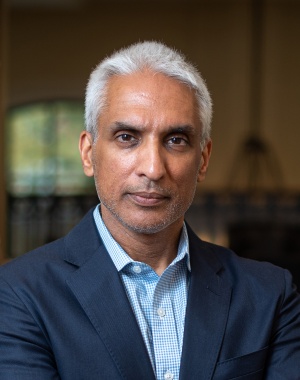War Game: Film Screening & Conversation
Speaker
Steve Bullock, Javed Ali, Zoe Clark, Cliff LampeDate & time
Location
Note: Please bring your M Card for free entry to event.
War Game sweeps audiences into an elaborate future-set simulation that dramatically escalates the threat posed by the January 6, 2021 insurrection. The film follows a bipartisan group of US defense, intelligence, and elected policymakers spanning five presidential administrations as they participate in an unscripted role-play exercise. The screening will be followed by a conversation featuring Former Governor Steve Bullock, Javed Ali (Ford School), Morela Hernandez (Ford School), and Cliff Lampe (School of Information) that will be moderated by Zoe Clark (Michigan Public).
The film screening and conversation are sponsored by the Gerald R. Ford School of Public Policy, University of Michigan Museum of Art, and the Year of Democracy, Civic Empowerment and Global Engagement.
About the film
War Game sweeps audiences into an elaborate future-set simulation that dramatically escalates the threat posed by the January 6, 2021 insurrection. The film follows a bipartisan group of US defense, intelligence, and elected policymakers spanning five presidential administrations as they participate in an unscripted role-play exercise. Portraying a fictional President of the United States and his advisors, they confront a political coup backed by rogue members of the US military in the wake of a contested 2024 presidential election.
Like actors in a thriller, but with profound real-world stakes, the players have only six hours to save American democracy. The simulation’s outcome hinges on several inflection points, from the government’s capacity to counter the disinformation that’s effectively spread by the insurgent side to the potential invocation of the Insurrection Act (i.e., the “nuclear option”). While the exercise served to stress test our institutions, the film is a critical wake-up call, underscoring the urgent need for bipartisanship in safeguarding American democracy.
Speaker bios
Steve Bullock was elected Montana’s 24th Governor, serving from 2013-2020. He worked with a Republican-majority legislature to improve access to health care, kick dark money out of state elections, make record investments in education, protect access to public lands, invest in infrastructure, and strengthen Montana’s economy. Bullock brought diverse interests together to address challenging issues, from sage grouse and forest management to the Main Street Montana Project. By executive action, he led the nation in preserving net neutrality and combating dark money. Nationally, Bullock was elected Chair of the National Governors Association, Western Governors Association and Democratic Governors Association. Bullock served as Montana’s attorney general from 2009-2013. As attorney general, Bullock defended Montana’s hundred-year ban on corporate campaign spending, gaining national prominence for leading the challenge to the Supreme Court’s Citizens United decision.
Javed Ali is an associate professor of practice at the Gerald R. Ford School of Public Policy where he delivers courses on counterterrorism and domestic terrorism, cybersecurity, and national security law and policy. Ali brings more than 20 years of professional experience in national security and intelligence issues in Washington, DC. He held positions in the Defense Intelligence Agency and the Department of Homeland Security before joining the Federal Bureau of Investigation. While at the FBI, he also held senior roles on joint duty assignments at the National Intelligence Council and the National Counterterrorism Center, and the National Security Council under the Trump Administration. Ali holds a BA in political science from the University of Michigan, a JD from the University of Detroit School of Law, and an MA in international relations from American University. He provides TV and radio interviews on a range of national security issues to US and international networks and similar print commentary in such publications as The New York Times, The Washington Post, The Hill, and Newsweek.
Zoe Clark is Michigan Public's Political Director. In this role, Clark guides coverage of the state Capitol, elections, and policy debates. Her passion for understanding and explaining politics led Michigan Public to create the position in 2022 for the first time in station history. She offers regular on-air political analysis and hosts the November election-focused edition of Stateside on Fridays. She co-hosted, with Michigan Public Radio Network's Senior Capitol Correspondent Rick Pluta, It’s Just Politics, a weekly look at Michigan politics. Clark regularly appears on WKAR’s Off the Record, WDIV’s Flashpoint and offers political analysis on NPR, PBS, and CNN. Clark is an award-winning journalist, including the prestigious Peabody for overseeing the station’s first nationally distributed podcast Believed. Clark previously was the station’s Program Director and is the founder and former Executive Producer of Stateside. She began at the station by producing Jack Lessenberry’s daily interviews and essays, and producing Michigan Radio’s Morning Edition. Clark began her collegiate studies at George Washington University in Washington, D.C. She holds degrees in Communication Studies and Political Science from the University of Michigan and lives in Ann Arbor, where she was born and raised.
Cliff Lampe is a professor in the School of Information. Previously, he spent six years as an assistant professor in the College of Communication Arts and Sciences at Michigan State University. He researches the social and technical structures of large scale technology mediated communication, working with sites like Facebook, Wikipedia, Slashdot and Everything2. He has also been involved in the creation of multiple social media and online community projects, usually designed to enable collective action. One of Cliff's core values is combining top quality research with community engagement.
